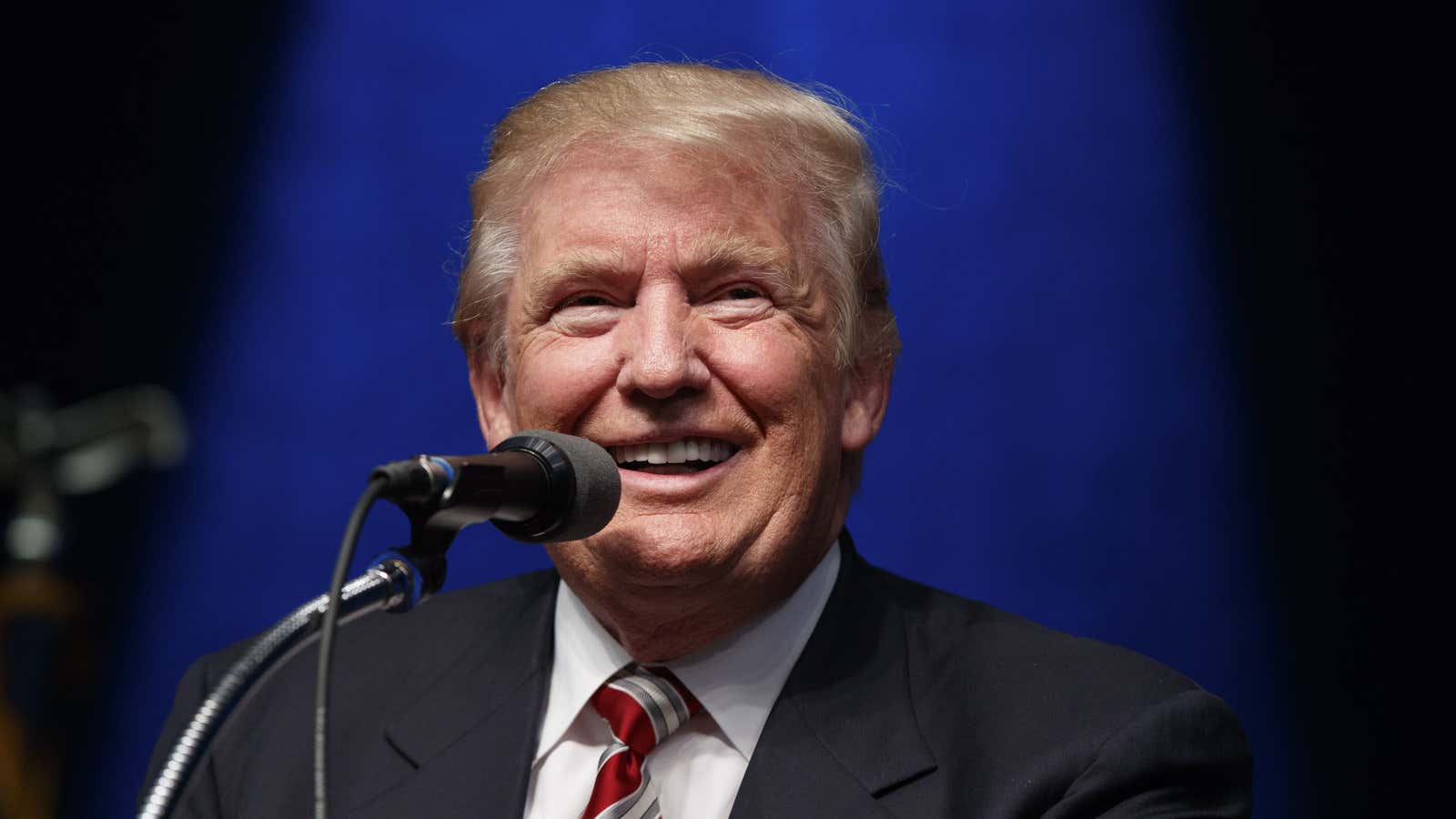Most Americans don’t have a lot of faith in the news media anymore, and Donald Trump is proudly claiming a role in that decline.
Trust and confidence in the US media to report the news “fully, accurately, and fairly” sank to a new low this year, according to a September Gallup poll. Just 32% of Americans surveyed said they had a great deal or fair amount of trust and confidence in the media, while 27%—the highest share since Gallup began polling on the issue in 1972—said they had none at all.
“I’m very proud to say that I think I had a lot to do with that poll number,” said the Republican candidate for president, in an interview with New York radio host Fred Dicker on Sept. 15. “I exposed the media,” he said, earlier on in the interview.
The Republican presidential hopeful has repeatedly and vocally called out the media, saying it is biased against him and his election bid. And in doing so, he has brought to the forefront concerns about media fairness that have been breeding among Americans for a while.
Republicans have generally been more skeptical of the media, which many perceive as leaning liberal. But Trump’s sharp criticisms of the press, coupled with the narrative pushed by Republican leaders and conservative pundits that Trump has been unfairly demonized by the press, may have helped drive Republican trust in the media down even more sharply this year, according to Gallup.
The left-leaning public has lost trust in the media as well. Some Democrats believe the press hasn’t given Hillary Clinton a fair shake, arguing that she has been unfairly pilloried about her health, email scandal, and the Clinton Foundation. And some have accused the media of holding Clinton to a higher standard than Trump because she is seen as the likely winner of the election.
Of course, the media’s job is to poke holes in glib narratives and ask challenging questions—and it is rightly criticized when it fails to do that. That role is arguably never more important than during an election, when the public is deciding who will become the nation’s next leader.
In the radio interview, Trump went on to call out specific news organizations, including CNN and the New York Times, whose coverage, he said, was ”unbelievably dishonest,” “horrible,” or ”a disgrace.”
“The media has openly been dishonest, and I looked at that poll and I said, ‘wow,'” said Trump, in the radio interview. “Because every speech I talk about it, and I have tens of thousands of people showing up to these speeches and they are on television… and I will tell you that everybody is talking about the dishonesty, the total dishonesty of some of the papers and the media generally.”
Trump also called attention to the role that he thinks Twitter—which has been a major pulpit for Trump’s own campaign—has served in fueling distrust in the media. ”How can you have a writer who’s supposed to be unbiased saying horrible things about a person [on Twitter] and then he’s supposed to write about him,” said Trump.
Politics aside, the lack of trust is a serious issue facing news organizations, especially those with declining readerships—and it’s a serious issue facing our democracy, which requires a free and functioning media to promote public discourse.
